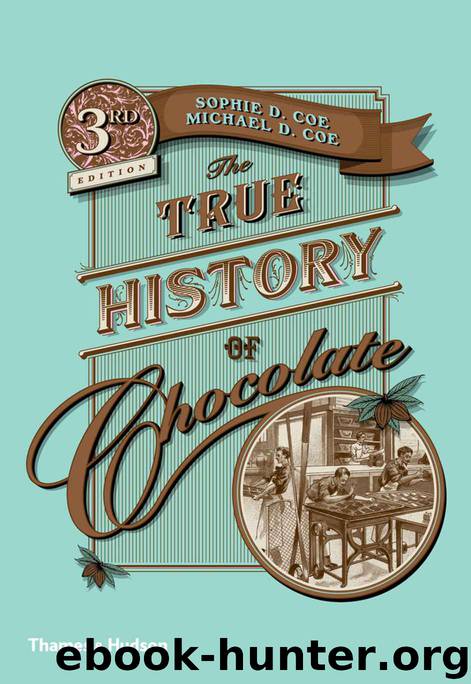The True History of Chocolate by Coe Sophie D. & Coe Michael D

Author:Coe, Sophie D. & Coe, Michael D. [Coe, Sophie D.]
Language: eng
Format: epub
Publisher: Thames & Hudson
Published: 2013-06-28T00:00:00+00:00
Title page of the treatise by León Pinelo, Madrid, 1636, discussing whether chocolate breaks the ecclesiastical fast. (From Antonio de León Pinelo, Questión moral si la bebida del chocolate quebranta el ayuno eclesiástico, Madrid, 1636.)
The court intrigues of the period appear in the novels of Alexandre Dumas (1802–70); a major figure in these events was the mighty Armand Jean du Plessis, Cardinal de Richelieu (1585–1642). When Richelieu became Minister in 1624, he decided that Anne was opposed to his anti-Spanish policy, and he raised suspicions against her. Thus, her influence was always weak at best, and usually non-existent. All this makes for fascinating reading, but unfortunately for our story, there is no real evidence that the unfortunate Anne of Austria brought chocolate with her to the French court.
According to a second theory, the transmission from Spain took place when Spanish monks sent gifts of the stuff (presumably cacao tablets or bricks) to their French confrères. This is possible, but again we are dealing with pure conjecture.
The final theory at least has some documentary evidence to increase its plausibility; it becomes even more credible when we learn from it that chocolate could have entered France as a medicine; this would have been typical of the period. Here are the data upon which this theory is based. In his Mélanges d’Histoire et de Littérature, published in 1713, Bonaventure d’Argonne makes the following assertion:
We know that Cardinal Brancaccio wrote a treatise on Chocolate, but perhaps we do not know that the Cardinal of Lyon, Alphonse de Richelieu, was the first in France to use this drug. I heard from one of his servants that he used it to moderate the vapors of his spleen, and that he had the secret from some Spanish monks who brought it to France.42
Even more precise is a passage in Alfred Franklin’s important 1893 history of tea, coffee, and chocolate: “This assertion is even more likely in that René Moreau, celebrated physician of Paris, recounts having been consulted, before 1642, by the Cardinal of Lyon, on the therapeutic properties of chocolate.”43 Alphonse de Richelieu was the elder brother of the famous Cardinal de Richelieu, master politician, and there is reason to believe that the latter took up chocolate drinking on a regular basis on the advice of his sibling.
Download
This site does not store any files on its server. We only index and link to content provided by other sites. Please contact the content providers to delete copyright contents if any and email us, we'll remove relevant links or contents immediately.
The Body: A Guide for Occupants by Bill Bryson(5096)
Audition by Ryu Murakami(4930)
Adulting by Kelly Williams Brown(4574)
Housekeeping by Marilynne Robinson(4447)
1578 Plant Pattern Recognition Receptors by Unknown(4354)
Be in a Treehouse by Pete Nelson(4051)
Zero Waste Home by Bea Johnson(3839)
Seriously... I'm Kidding by Ellen DeGeneres(3633)
Better Homes and Gardens New Cookbook by Better Homes & Gardens(3595)
The Healing Self by Deepak Chopra(3578)
Barkskins by Annie Proulx(3371)
Hedgerow by John Wright(3361)
The Cellar by Natasha Preston(3344)
The Genius of Japanese Carpentry by Azby Brown(3309)
Spark Joy by Marie Kondo(3302)
120 Days of Sodom by Marquis de Sade(3275)
The Life-Changing Magic Of Tidying Up- The Japanese Art Of Decluttering And Organizing (v5.0) by Marie Kondo(3269)
Work Clean by Dan Charnas(3123)
The Book of Numbers by Peter Bentley(2968)
